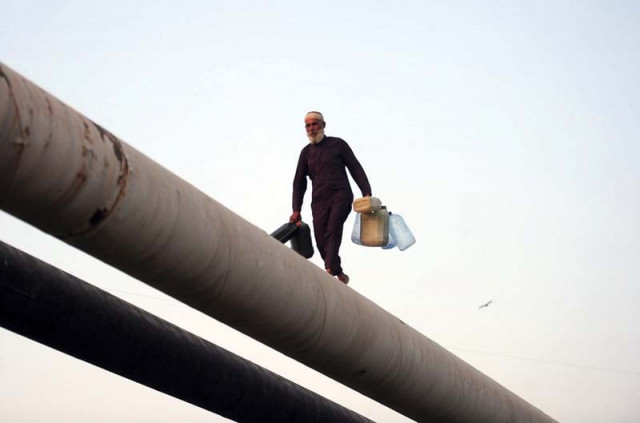Water shortage in Sindh
Drought-prone areas which have suffered during the 2013-15 drought season are witnessing high child mortality rates

PHOTO: FILE
The report goes on to lay out a detailed proposal, which if adopted could alleviate the suffering of those whose lives and livelihoods have been adversely impacted. If the Sindh government intends to take these findings seriously, it must adopt both an immediate and long term relief programme to reduce the damage to people’s lives. The report has proposed that the government look into the construction of additional storage for water to avoid a repeat of this situation down the line. As weather patterns continue to become more erratic, it is likely that droughts will become a fact of life not only for the already affected districts of Sindh but for several other parts of the country as well. As an agrarian society that is highly reliant on crop yields, both federal and provincial governments must look into the development of water-related policies. Several other countries have already started working on this and such foresightedness is required in Pakistan to avoid a large-scale disaster. Meanwhile, the drought-affected people in Sindh require immediate attention and relief.
Published in The Express Tribune, August 29th, 2016.
Like Opinion & Editorial on Facebook, follow @ETOpEd on Twitter to receive all updates on all our daily pieces.















COMMENTS
Comments are moderated and generally will be posted if they are on-topic and not abusive.
For more information, please see our Comments FAQ